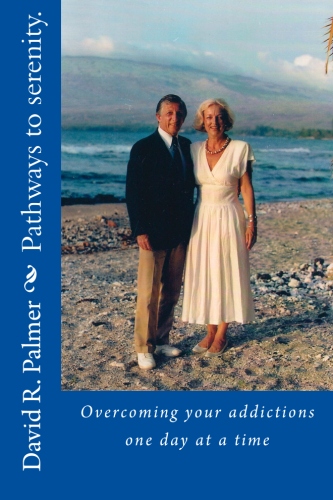Nurses in recovery.
A new book on prescription drug abuse
From Unbecoming a Nurse to Overcoming Addiction
By Paula Davies Scimeca, RN, MS
Sea Meca, Inc. $19.95
 “One day after having been up all night getting high,” a registered nurse writes in her testimony in Paula Scimeca’s book, From Unbecoming a Nurse to Overcoming Addiction, “I got ready for work in the wee hours of the morning. I took my shower, ironed my uniform and walked to work.
“One day after having been up all night getting high,” a registered nurse writes in her testimony in Paula Scimeca’s book, From Unbecoming a Nurse to Overcoming Addiction, “I got ready for work in the wee hours of the morning. I took my shower, ironed my uniform and walked to work.
“Mid-morning that day, I was passing medications. I don’t know if I blacked out or fell asleep while standing up, but when I came to, I realized that the medication in the cup in front me was not the medication for the patient I was about to dispense it to.”
If you are a patient in a hospital reading this, you may be reaching for your street clothes and planning your escape. But hold on, the nurse in this case got it straightened out in time, checked herself into long term treatment and is today a nurse in drug treatment program helping others recover.
Still, there is much to be concerned about, says author Scimeca, an RN for 35 years and an adjunct professor of nursing at New York’s Wagner College who has had extensive experience working in drug treatment programs. She has been a vigorous campaigner against drug abuse in the nursing profession.
“Though statistics are hard to come by,” she said in a recent letter to One Day at a Time, “it is widely accepted that between ten and twenty percent of nurses develop a problem with alcohol or other drugs during their lifetime.
This means that given the nearly three million RNs and hundreds of thousands of LPNs currently licensed in the U.S., even the lowest estimate of ten percent equates to nearly five hundred thousand nurses encountering an issue at some point.”
Scimeca has had an interest in addressing addiction problems in the nursing profession for a long time, but what really got her dander up and resulted in her writing her first book was actress Edie Falco’s character, Jackie Peyton, in the Nurse Jackie television series.
The show, promotional material said, “is about a drug-addicted nurse who struggles to find a balance between the demands of her frenetic job at a New York City hospital and an array of personal dramas.”
What galls Scimeca is “the powerful and wholly untrue perception the show gives that the behavior of the Nurse Jackie character portrays is benign.
“Nurses in real life who do step over the numerous lines Jackie crosses in a half hour segment,” Simeca says, “face devastating, exquisitely painful consequences. Many of the repercussions are irreversible and last a lifetime.
“The unvarnished truth is that thousands of nurses in this country surrender their license to practice nursing every year related to habitual use of substances, even those legitimately prescribed. Many lose fine jobs as well as reputations and respect among their peers.
“Some forfeit child custody rights, while some face criminal prosecution in addition to professional discipline charges. As this article is being printed, several nurses await sentencing for up to twenty-five years in prison. Hundreds have already relinquished their lives due to prescription addiction and other substance use.”
In Scimeca’s first book, Unbecoming a Nurse she emphasizes that the seriousness of drug addiction in nurses cannot be overestimated and that even the most conscientious nurses can succumb to the pressures—and temptations — of “a demanding and exciting profession.”
Scimeca’s latest book, “From Unbecoming a Nurse to Overcoming Addiction” consists of 29 testimonials from nurses now in recovery. These stories remind us of the astonishing degradation associated with drug addiction, and the “Aha!” moments of self discovery and redemption make for great reading.
Still, while applauding the achievements of these nurses in overcoming their addictions (at least for today), some readers may also find revelations of professional wrongdoing alarming. For instance:
“During nursing school,” says one young nurse in recovery, “I was working in a head shop, which is a place that sells drug-related paraphernalia. So I was doing clinical during the day, and in the afternoon I was working in the head shop. By this time I was a daily pot smoker and was drinking alcohol pretty heavily.
“Then I started working in a pharmacy which was where I began diverting medication. I did a lot of experimenting and tried everything even anti-depressants, because I wanted something to make me feel better. This went on for quite some time. I just fell in love with opiates, which became my drug of choice.
“I would read the package inserts and think, “People like me are going to abuse this stuff. And I did.”
The testimonials also remind readers that the power of addiction is frequently underestimated. To wit:
“I thought I knew what addiction was at the time. I relied on what my drug handbook said about an addict being someone who became physically dependent on the substance. I felt if that was what it took for me to get through life. I would be OK.
“The drug handbook left out the part that I would build up a tolerance to the substance I used and that I would require larger amounts, not just to feel high, but to just feel normal. The handbook omitted that when the pills and alcohol were taken away from me that I would lie, steal, cheat and do just about anything to get what I thought I needed.”
And then there are the happy endings:
“My life has actually been enriched by my relapse. To this very day, I do not take for granted that I am sober. I do not take for granted that I am still married to the love of my life, despite all that I put him through. I do not take for granted that I have a good relationship with my son who turned out to be kind and loving despite what I put him through. And I do not take for granted that I am allowed to practice as a Registered Nurse in my state without restriction on my license.”
While the stories of recovery are enormously gratifying and inspiring to those in need of recovery, Scimeca says, there is much more to be done.
National and local nursing associations and nursing schools, she says, must become more affective in addressing the exposure nurses encounter in the workplace so that nurses with addictive disorders can be identified earlier. It will save their lives and careers and safeguard the public.
One of Scimeca’s major complaints has to do with the decades old professional terminology which refers to unused partial and full doses of medication as “waste medication.”
It promotes a mind-set in some nurse vulnerable to addiction, Scimeca says. that these “waste” doses are up for grabs and can be salvaged by nurses for their own use rather than disposing of them properly.
Editor’s note: For those who want to check on a nurses record, there is a web site called “NURSYS” that could be helpful.



